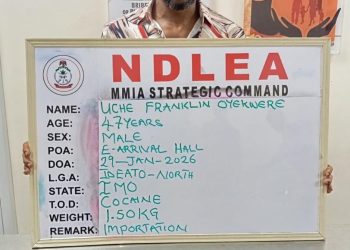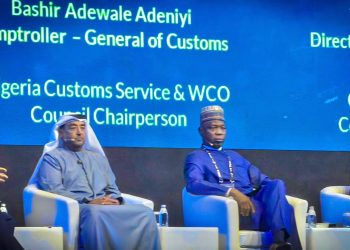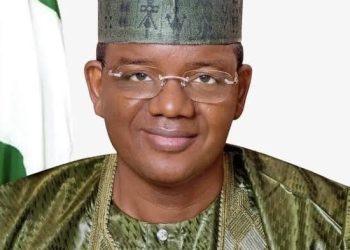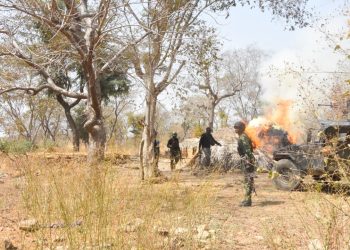By Eze Nkechi
In a bid to furnish journalists with the awareness and skills needed to put together captivating reports on Digital Public Infrastructure, stimulate public engagement and prevalence in West Africa’s digital landscape, the Media Foundation for West Africa, MFWA, an international non-governmental organization in partnership the International Press Centre, IPC recently conveyed a public forum with its theme; “The Status of Digital Public Infrastructure in Nigeria: Progress, Challenges and Prospects”.
Stella Nwofia, the programmes manager, International Press Centre (IPC), in her opening remarks emphasised on the synergy between DPI, DPGs and journalism.

“The synergy between DPI, DPGs, and journalism, highlights the critical function of technology in elevating voices, promoting transparency, and empowering journalists in their vital role as democracy’s sentinels”.
While speaking on the need to create a more unified world, she said “Together, as allies in this mission to create a more interconnected, knowledgeable, and inclusive world, we embrace this chance to share insights, exchange best practices, and establish partnerships that will not only refine the calibre of journalism but also contribute to nurturing a dynamic and robust media landscape”.
The programme director for Media and Good Governance, Abigail Larbi who also spoke during the forum reeled out the aims and objectives to be achieved by the forum.

According to her, some of the aims include;
“To deliberate on the current state of Nigeria’s Digital Public Infrastructure and Digital Public Goods, assessing the extent to which inclusivity has been ensured in their deployment, also to highlight the challenges faced in this endeavour and, more importantly, to generate actionable recommendations on how Nigeria can make the adoption of DPI/DPGs more inclusive, safe, and equitable for all its citizens”
Mrs Larbi averred that recent surveys revealed that 72% of Nigerians believe that access to digital services is essential for development. According to her, this widespread recognition underscores the urgency of discussions on DPIs/DPGs. However, equally important is acknowledging that 68% of Nigerians have expressed concerns about online data security.
“Building trust in Nigeria’s digital infrastructure is paramount. There is therefore a need to prioritize data privacy and cybersecurity measures to ensure that Nigerians feel safe and empowered to participate in the digital world” she said.
Comrade Chris Ikechukwu Isiguzo, National President, Nigeria Union of Journalists (NUJ), who was ably represented by Mr Achike Chude, National Secretary of the Nigeria Union of Journalists (NUJ), during his remarks, acknowledged that the media continues to play an important role in the development of nations and bringing awareness between the government and the people, he further noted that the media is vital in sustaining the values of democracy. Chude decried the low turnout of public officials invited for the forum and hoped that the resolutions that will be met will be fully implemented.
Comrade Emmanuel Ogbeche, Special Adviser on Media to Cross River State Governor, gave emphasis to insecurity, as a major menace to digital education across the Nation, and in Africa.
“The challenge of Boko Haram in the Northeast, destroying digital infrastructure is enormous, it is therefore important that government provides adequate security for infrastructures. Media Foundation for West Africa and the International Press Centre needs to bring to bare these issues, as it would help in addressing certain challenges faced by journalists and hopefully, some recommendations can be made” he said.
Dr. Engineer Salisu Kuka, Director Digital Economy Department, National Information Technology Development Agency (NITDA), during the panel discussion, responded that Nigeria can get digital public infrastructure, “Just like any other tradition, it comes with initial resistance. There is a lot of struggle in terms of educating the society and the people. The capital investment is something that requires collaboration, largely in the private sector, because private sectors are the ones making investments. The government’s role is to enable a safe and efficient space for investment. However, there is a strong appetite for that investment in the private sector. If we want to have the right infrastructure in place, investment is crucial. Besides that, the more the society is educated and aware of the value infrastructure will bring, the more demand there will be for service. Government can make interventions, but to what extent in all aspects of our development, can we convince society that this is critical for business? We are currently struggling through policies, guidelines, and standards that need to be put in place to ensure a business-friendly environment. It is important to learn from reality. If we want to improve, it is a global stride, just like when the internet initially came. It had its challenges, but now, if I ask all of us, we would agree that the internet is as important as oxygen. Once there are disruptions, innovation comes out, but there are consequences. Therefore, the government has to ensure that necessary measures to safeguard are provided in terms of technology, ethics, security, privacy, and that trust is built in society.
Felicita Aku, Senior Partnerships Manager, AfriLabs, while speaking on the digital gap with regards to the male and female gender, said that “we are not where we use to be, which is why a co-creation approach is something that shouldn’t be taken for granted. The place of mentor and mentorship cannot be over emphasised, as it makes it easier to achieve set goals. With regards to the adoption of DPI in Nigeria and ensuring that there is gender inclusivity, all hands should be on deck, these people should be brought forward when having these conversations, designing a framework and rolling the plan. Involving them in the implementation, will go a long way in setting them to adapt” she said.















Internet is important as oxygen. This statement by engineer Salisu kukah is very powerful and great insight of illustration.
All the speakers are great dishers of knowledge
Good job FRSC
Media Foundation needs to look into the issue of gender balance, as it is a big issue globally
Great Job, Media Foundation and IPC. We need our DPI’s secured, and more sensitization in the rural communities